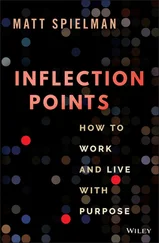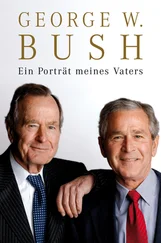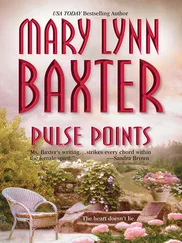With Norm Mineta. White House/Eric Draper
Members of Congress were united in their determination to protect the country. Senator Tom Daschle, the Democratic majority leader, issued one cautionary note. He said I should be careful about the word war because it had such powerful implications. I listened to his concerns, but I disagreed. If four coordinated attacks by a terrorist network that had pledged to kill as many Americans as possible was not an act of war, then what was it? A breach of diplomatic protocol?
One of the last people to speak was Robert Byrd, the eighty-three-year-old Democratic senator from West Virginia. He had served through the Cuban Missile Crisis, the Vietnam War, the end of the Cold War, and countless other challenges. His eloquent words inspired the room. “Despite Hollywood and TV,” he said, “there is an army of people who believe in divine guidance and the Creator. … Mighty forces will come to your aid.”

Late in the afternoon of September 12, I made the short trip across the Potomac to the Pentagon. The building was smoldering, and there were still bodies inside. Don Rumsfeld and I walked the crash site and thanked the work crews for their devotion. At one point, a team of workers atop the building unfurled a giant American flag. It was a sign of defiance and resolve, exactly what the nation needed to see. One of the last groups I met was the morgue team. Joe Hagin brought them over. They were covered in dust after performing the saddest duty of all. I told them how much I appreciated the dignity they brought to their work.
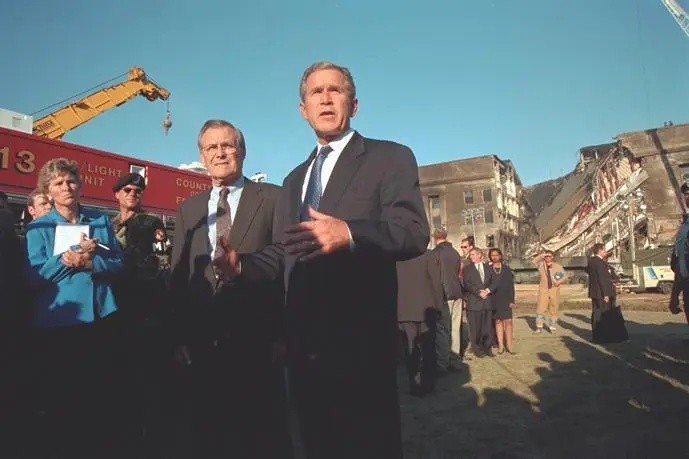
Visiting the Pentagon on September 12, 2001, with Don Rumsfeld. White House/Eric Draper
The experience at the Pentagon convinced me I needed to go to New York as soon as possible. Joe told me there were some serious problems with that idea. The Secret Service wasn’t sure the area was secure. The advance teams did not have time to prepare for a presidential event. No one knew what the environment at Ground Zero would be like. These were valid concerns, but I had made up my mind. I wanted New Yorkers to know that they were not alone. I took the attack as personally as they did. There was no substitute for telling them face to face.
I decided to break the news Thursday morning. Ari Fleischer had suggested that we invite the press into the Oval Office to witness my phone call with New York Governor George Pataki and Mayor Rudy Giuliani. “I can’t tell you how proud I am of the good citizens of your part of the world, and the extraordinary job you all are doing,” I said. Then I dropped the surprise. “You’ve extended me a kind invitation to come to New York City. I accept; I’ll be there tomorrow afternoon.”
I agreed to take a few questions from the press after the call. They asked about the safety of the aviation system, the whereabouts of bin Laden, and what I was requesting from Congress. The last question came from a reporter for the Christian Science Monitor : “Could you give us a sense as to what kind of prayers you are thinking and where your heart is … ?”
I had managed to suppress my emotion in public for the past two days, but this question brought it to the surface. I had been thinking about Ted Olson’s grief-stricken voice. I pictured the exhausted morgue team. I thought about the innocent children who had died, and those who had lost their mom or dad. The sorrow that had accumulated burst forth. My eyes filled with tears and my throat caught. I paused briefly as the cameras clicked rapidly. I regained my composure, put my hand down on the Resolute desk, and leaned forward. “Well, I don’t think about myself right now. I think about the families, the children. I am a loving guy, and I am also someone, however, who has got a job to do. And I intend to do it.”

Later that day, Laura and I went to the Washington Hospital Center to visit victims from the Pentagon. Some had been burned over huge portions of their bodies. I asked one if he was an Army Ranger. Without missing a beat, he answered, “No, sir, I’m Special Forces. My IQ is too high to be a Ranger.” Everyone in the room—his wife, his doctors, Laura, and me—cracked up. It felt good to laugh. I left the hospital inspired by the courage of the wounded and the compassion of the doctors and nurses.
Andy Card was waiting in the South Lawn driveway when we returned from the hospital. Before I could get out of the limo, he opened the door and jumped in. He told me there had been a bomb threat to the White House. The Secret Service had relocated the vice president, and they wanted to evacuate me, too. I told the agents to double-check the intelligence and send home as many of the White House staff as possible. But I was staying put. I was not going to give the enemy the pleasure of seeing me hustled around to different locations again. The Secret Service extended the security perimeter of the White House. We made it through the day. When we went to bed, I thought, Another day with no attack. Thank God.

Nearly three thousand innocent men, women, and children were killed on September 11. I felt it was important for the country to mourn together, so I set aside Friday as a National Day of Prayer and Remembrance. I knew September 14 would be a grueling and emotional day. I did not expect it to be the most inspiring one of my life.
A little after 7:00 a.m., Andy Card met me in the Oval Office for my national security briefing. The CIA believed that there were more al Qaeda operatives in the United States and that they wanted to attack America with biological, chemical, or nuclear weapons. It was hard to imagine anything more devastating than 9/11, but a terrorist attack with weapons of mass destruction would qualify.
I asked FBI Director Bob Mueller and Attorney General John Ashcroft to update me on the progress of the FBI’s investigation of the hijackers. Bob told me they had identified most of the terrorists and determined when they’d entered the country, where they’d stayed, and how they’d executed the plot. It was an impressive piece of investigation. But it wasn’t enough.
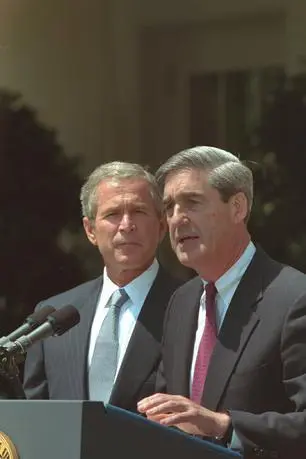
With Bob Mueller. White House/Paul Morse
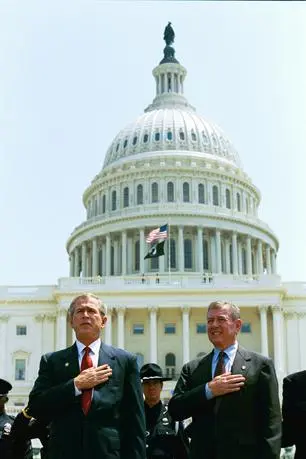
With John Ashcroft. Associated Press/Doug Mills
“What are you doing to stop the next attack?” I asked. People nervously shifted in their seats. I told Bob I wanted the Bureau to adopt a wartime mentality. We needed to disrupt attacks before they happened, not just investigate them after they took place. At the end of the meeting, Bob affirmed, “That’s our new mission, preventing attacks.” Over the years ahead, he fulfilled his promise and carried out the most fundamental transformation of the FBI in its century-long history.
After a phone call with Prime Minister Ariel Sharon of Israel, a leader who understood what it meant to fight terror, I began my first Cabinet meeting since the terrorist attacks. As I stepped into the room, the team broke out in sustained applause. I was surprised, and I choked up at their heartfelt support. The tears flowed for the second time in two days.
Читать дальше










